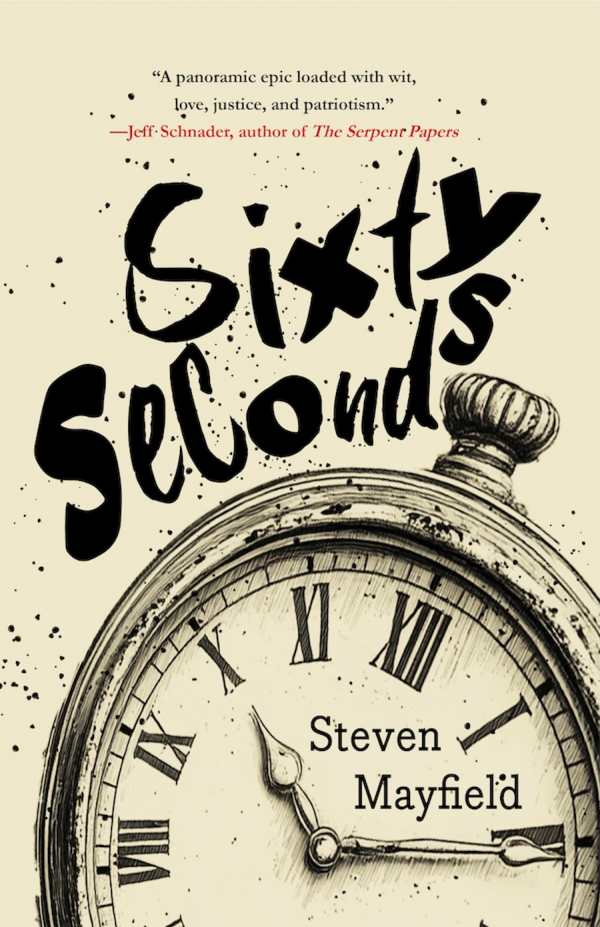Sixty Seconds
Nine revolving points of view sync with snippets of the national anthem in Sixty Seconds, a captivating novel in which history unfolds moment by moment.
In Steven Mayfield’s kinetic historical novel Sixty Seconds, nine people grapple with their pasts during the final minute of World War II.
On May 7, 1945, fifteen-year-old Jenny sings the American national anthem in Times Square. A mentally challenged man with a gun approaches the stage, sent on a violent mission by a madwoman who lives across the street from the CBS network building. Broadcasting from the event is veteran war correspondent Farley, who comments on his final broadcast before retirement.
The broadcast goes live around the world, allowing Jimmy, a B-17 belly gunner, to hear his sister’s voice through the speakers at an American airfield in Germany. Meanwhile, Zimmer, an exhausted and jaded Wehrmacht soldier, searches for a safe place to surrender; Gosia, a refugee in the US who lost her love, Antoni, after they escaped a death camp, is in labor as the anthem plays on her bedside table; and Antoni is working as a translator for American officers interrogating a former camp commandant, Franz. The scenes devoted to the latter drip with cruelty and horror.
Within the fraught sixty seconds before the official end of the war, these nine lives change and overlap in dramatic, unexpected ways. Each chapter encompasses ten seconds’ worth of time as Jenny’s rendition resounds across the airwaves, binding the characters together despite their disparate locations and circumstances. From there, the nine revolving points of view sync with snippets of the anthem and histories as they unfold.
Each character’s memories are shot through with the emotional and psychological carnage of war. As Antoni decides the fate of a man he hates before V-E Day breaks, he hears the fading strands of an anthem that stands for a life free of tyrants. It does not move him, because “tyrants [are] everywhere, tyranny sometimes confined to a single town or even a solitary expression of disgust. Why will America be any different?”
The rich, complex backstories of the cast add urgency to the main event of the story: the gunman in Times Square and the bleeding seconds that tick over into V-E Day. Further, the frenetic changes in perspective create a propulsive “countdown” energy that is sustained to the end.
Sixty Seconds is a sublime, character-driven historical novel in which the end of World War II has different meanings for different people, though their scars act as the common denominator.
Reviewed by
Peggy Kurkowski
Disclosure: This article is not an endorsement, but a review. The publisher of this book provided free copies of the book and paid a small fee to have their book reviewed by a professional reviewer. Foreword Reviews and Clarion Reviews make no guarantee that the publisher will receive a positive review. Foreword Magazine, Inc. is disclosing this in accordance with the Federal Trade Commission’s 16 CFR, Part 255.

